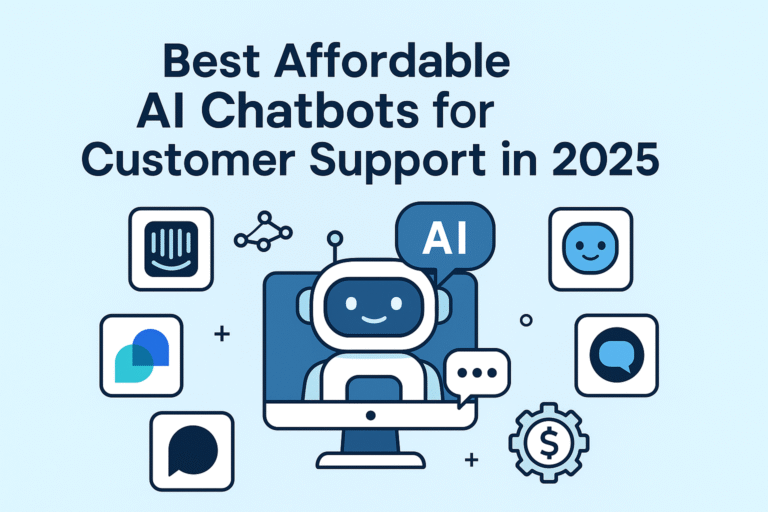As we approach 2025, the world of wealth management is evolving rapidly, influenced by technological advancements, economic shifts, and changing consumer preferences. To navigate the future successfully, it’s essential to stay informed about the latest trends that will impact your financial growth and security. In this article, we’ll explore the top wealth management trends for 2025, helping you protect and grow your assets.
1. Rise of Robo-Advisors and AI in Wealth Management
Robo-advisors have been growing in popularity, and by 2025, AI-driven solutions are expected to dominate the wealth management landscape. These automated platforms use algorithms to analyze your financial situation and create personalized investment strategies at a fraction of the cost of traditional advisors.
Key Features:
- Low-cost, automated financial planning.
- Personalized portfolios based on AI-driven analysis.
- Access to real-time market insights and updates.
Pros:
- Affordable for people with small or moderate investments.
- Convenient and accessible anytime, anywhere.
- Tailored financial advice at a lower price point.
Cons:
- Limited human interaction, which may not suit everyone.
- Less flexibility for complex financial needs.
Pricing:
Typically, robo-advisors charge a small annual fee ranging from 0.25% to 0.50% of assets under management.
External Link: How Robo-Advisors Are Changing Wealth Management
2. Sustainable and Impact Investing
In 2025, there will be an increased focus on Environmental, Social, and Governance (ESG) investing, driven by both consumer demand and societal changes. Wealth management firms are incorporating ESG factors into their investment strategies, allowing clients to invest in companies that align with their values.
Key Features:
- Investments in companies with strong environmental and social practices.
- Greater transparency around corporate governance.
- Growing number of sustainable investment funds.
Pros:
- Align your financial goals with your values.
- Potential for strong long-term returns as ESG companies perform better in the market.
- Contribute to social and environmental causes.
Cons:
- Limited options for specific industries or sectors.
- Can be more volatile in certain markets.
Pricing:
ESG investment funds may have higher management fees than traditional funds but often result in better long-term returns.
External Link: The Future of Impact Investing
3. Personalized Wealth Management Solutions
In 2025, clients will expect more personalized wealth management experiences. From tailored investment portfolios to bespoke financial advice, wealth managers will leverage data analytics and AI to offer a higher level of customization to their clients’ needs.
Key Features:
- Personalized advice based on individual financial goals.
- Data-driven recommendations and portfolio management.
- Integration of family wealth planning, estate planning, and tax strategy.
Pros:
- Highly customized advice to suit your specific needs.
- More effective wealth growth strategies.
- Comprehensive financial planning that includes tax and estate management.
Cons:
- May come at a premium cost, especially with high-touch advisors.
- Could involve more complexity in tracking and managing multiple strategies.
Pricing:
Personalized wealth management typically starts around 1% of assets under management, but fees can vary depending on the level of customization and services offered.
External Link: The Benefits of Personalized Wealth Management
4. Crypto and Digital Asset Integration
Cryptocurrency and digital assets will continue to gain traction in 2025. More investors will look to include these assets in their portfolios, with wealth management firms providing more services for managing cryptocurrencies, NFTs, and blockchain-based investments.
Key Features:
- Crypto asset management alongside traditional investments.
- Integration with blockchain technologies for secure transactions.
- Educational resources for investors new to digital assets.
Pros:
- Potential for high returns as the market matures.
- Diversification of investment portfolios with alternative assets.
- Growing legitimacy of cryptocurrencies as a long-term asset class.
Cons:
- High volatility and risk associated with digital currencies.
- Regulatory uncertainty around cryptocurrencies.
Pricing:
Cryptocurrency management services often charge a higher fee due to the complexity of the asset class, typically ranging from 0.5% to 1.5% of assets under management.
External Link: Understanding Crypto in Wealth Management
5. Wealth Management for the Next Generation
As wealth passes from one generation to the next, wealth management strategies will evolve to focus on the next generation’s financial goals. In 2025, firms will offer solutions to help younger investors build wealth while preparing for future inheritances and generational wealth transfers.
Key Features:
- Estate planning and tax strategies for passing wealth to heirs.
- Investment education for younger generations.
- Focus on long-term wealth preservation and growth.
Pros:
- Ensures a smooth transition of wealth across generations.
- Educates heirs on responsible financial management.
- Helps mitigate taxes and maximize wealth transfer.
Cons:
- Requires a long-term commitment to planning.
- May involve complex legal and tax considerations.
Pricing:
Fees for wealth transfer and estate planning vary based on the complexity of the estate, typically starting at around 1% of assets under management.
External Link: How to Transfer Wealth to the Next Generation
Conclusion
In 2025, wealth management will continue to be shaped by technological innovations, shifting market conditions, and evolving investor preferences. By staying ahead of these trends—whether through robo-advisors, ESG investing, or digital asset management—you can ensure that your wealth grows and remains secure in an ever-changing financial landscape.








